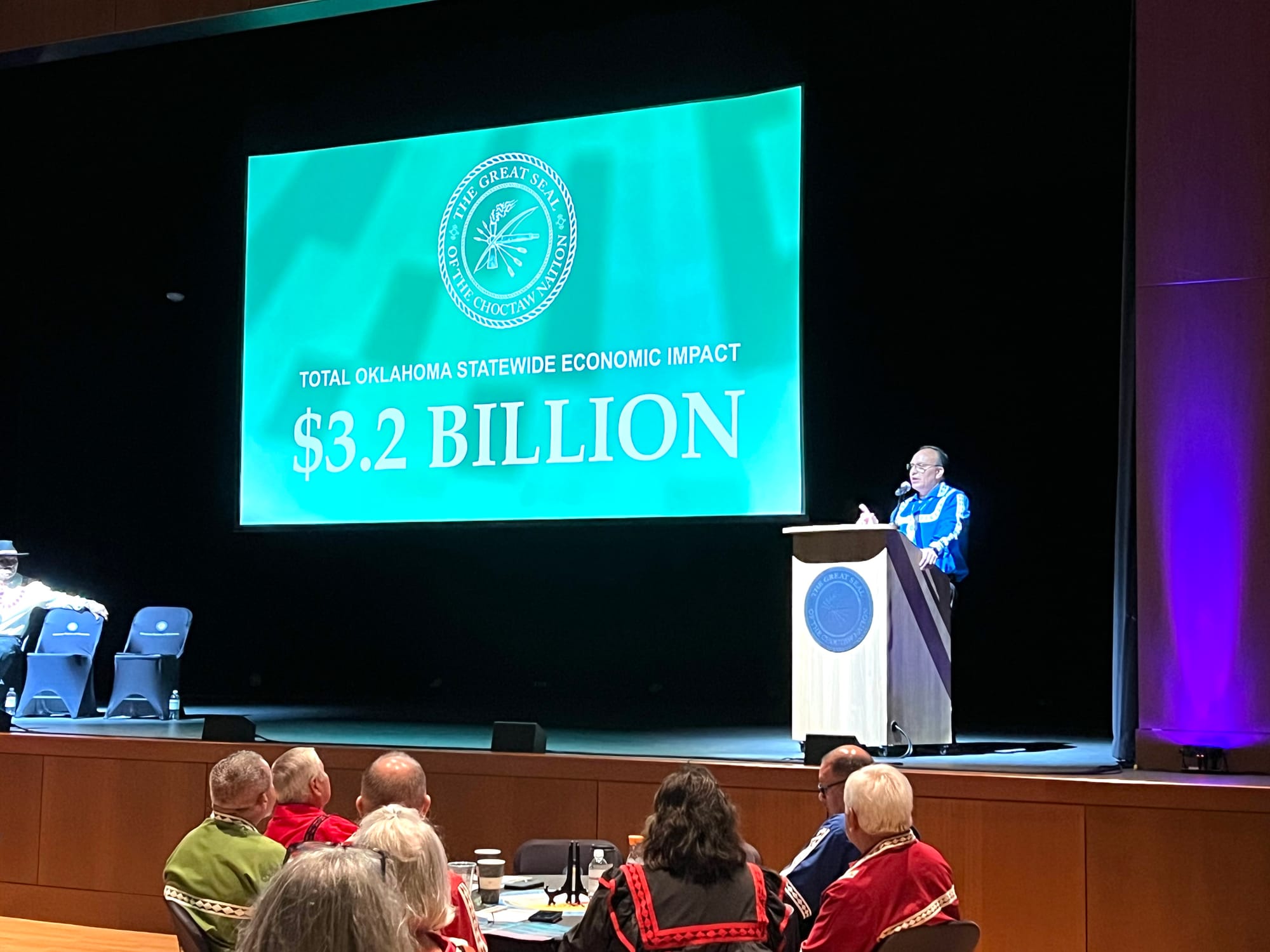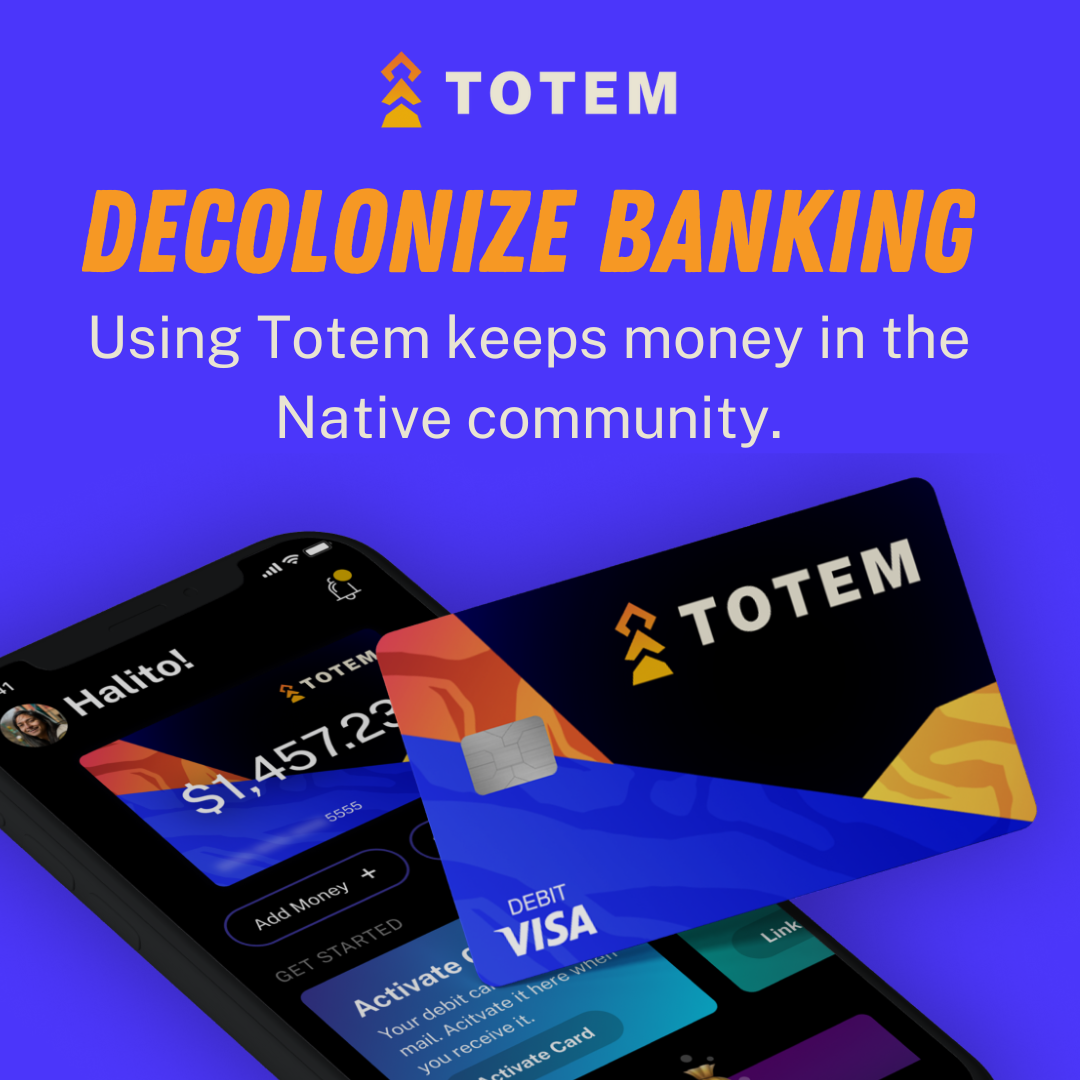
The Choctaw Nation is committed to bringing jobs, healthcare, housing and education to Oklahomans
(Durant, OKLA) – The Choctaw Nation of Oklahoma announced today that the tribe had a significant $3,227,364,212 impact on the State of Oklahoma for 2021. Tribal officials made the announcement during an economic impact press conference for several tribal, state, county and local officials.
The economic impact report, prepared by Dr. Kyle Dean, economist for the Center for Native American Studies at Oklahoma City University, shows the Choctaw Nation is a driving force in southeastern Oklahoma, as well as the overall state. In 2021, the Tribe reported 20,142 Oklahoma jobs supported, representing $1 billion in wages and benefits paid to Oklahomans.
“With its remarkable $3.2 billion impact, the Choctaw Nation is one of the most significant contributors to economic prosperity in Oklahoma. Through innovative enterprises and steadfast commitment to community, the Nation not only fortifies its own future but also significantly contributes to the economic fabric of communities throughout southeastern Oklahoma and the state,” said Dr. Dean. “Continued partnerships between the Choctaw Nation and local communities are crucial for the survival and prosperity of rural areas in southeastern Oklahoma, serving as a cornerstone for sustainable development and mutual growth in the region.”
“The Choctaw Nation’s $3.2 billion (up from $2.5 billion in 2019) economic impact is helping improve lives across Oklahoma. These dollars extend beyond our tribal reservation to help educate students, fund infrastructure improvements, and provide needed healthcare coverage to the often underserved,” said Chief Gary Batton, Chief of the Choctaw Nation. “We are proud the Choctaw Nation is able to help fuel Oklahoma’s growth and economic prosperity.”
Education. Choctaw Nation has paid more than $335 million in exclusivity fees to the State according to the Gaming compact, including $34.2 million in 2021. These funds go directly to support public education statewide. The Choctaw Nation funded over $61 million (beyond exclusivity fees) for educational programs. In addition to providing statewide education support, the Choctaw Nation funded 10,410 college education scholarships to the tune of $10.8 million, provided summer school education to 5,573 tribal and non-tribal students in 48 schools, and paid for 708 elementary-age children to attend Choctaw Head Start and Choctaw Childcare programs.
Housing. The Choctaw Nation is building a pathway to safe and affordable housing. In 2021, the Choctaw Nation invested $14.2 million to build 92 new homes across the reservation as part of the Lease-to-Purchase (LEAP) homeownership program, independent elder, and affordable rental programs. A total of 481 storm shelters were installed in 2021 to protect the lives of Tribal Members.
Healthcare. Providing access to quality healthcare to tribal members is a primary focus for the Choctaw Nation which operates a full-service hospital in Talihina, Okla., eight health clinics, three behavioral health clinics, five specialty clinics and 14 wellness centers. In 2021, the Choctaw Nation spent $282 million to support healthcare for Oklahomans and had more than 1 million patient encounters.
Community. Through the Choctaw Community Partnership Fund and Choctaw Development Fund, the Choctaw Nation has provided $3,525,252 in contributions and community grants to cities, towns and counties to support economic development, infrastructure and sustainability.
About The Choctaw Nation
The Choctaw Nation is the third-largest Indian Nation in the United States with more than 225,000 tribal members and 12,000-plus associates. This ancient people has an oral tradition dating back over 14,000 years. The first tribe over the Trail of Tears, its historic reservation boundaries are in the southeast corner of Oklahoma, covering 10,923 square miles. The Choctaw Nation’s vision, “Living out the Chahta Spirit of faith, family and culture,” is evident as it continues to focus on providing opportunities for growth and prosperity. For more information about the Choctaw Nation, its culture, heritage and traditions, please go to www.choctawnation.com.




